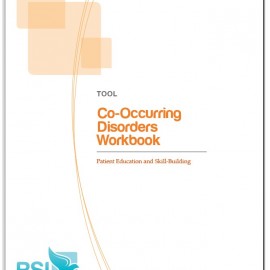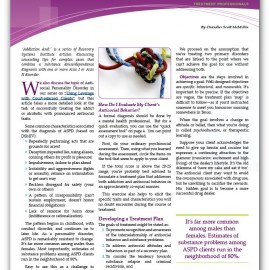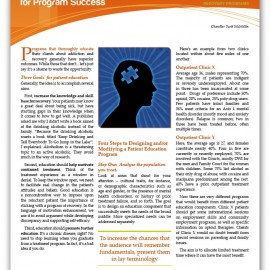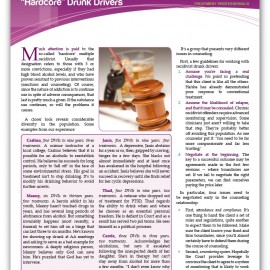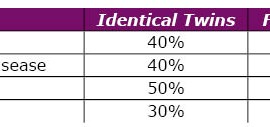Addiction Clinicians
Co-Occurring Disorders Workbook
The workbook is based on recognized disease-model treatment principles and can integrate readily in Matrix and other established EBP treatment protocols.
Topics: co-occurring disorders, patient education, program development
Retrain Your Brain: Scripting
Language– the words we choose for our self-talk– has a powerful influence on our brain function. Words can help us re-shape the cycle of feelings, impulses, and behaviors.
Topics: co-occurring disorders, cognitive behavioral therapy, mental illness, personality disorders, rational emotive therapy, Recovery Tools, therapeutic models, tools for recovery, trauma
Addiction And: ASPD
With a little leverage and some understanding of effective therapeutic technique, you can increase the chances of successful outcomes with these clients.
Topics: addicted offenders, alcoholism, assessment, client types and needs, co-occurring disorders, counseling skills, personality disorders
Complex Case: The Devil We Know
There’s this big group we lump under the heading ‘precontemplation’. But in practice, there are precontemplators, and pre-pre-contemplators, and pre-pre-pre-pre-pre-contemplators.
Topics: client types and needs, clinical management, co-occurring disorders, treatment models
Different Levels of Treatment: Who Gets What
For the most part, if you are hoping that insurance, Medicare or Medicaid, or another third-party payor will help with–or pick up entirely–the costs of treatment, you’ll be running into ASAM criteria that control who gets what kind of treatment.
Topics: ASAM, assessment, diagnosis, inpatient treatment, long term treatment, outpatient treatment, types of treatment
Patient Education: Powerful Tool for Program Success
A key breakthrough for recovering clients: The realization that, while they cannot control their disease, they can do a lot about their own recovery.
Topics: clinical management, patient education, program development
Counseling Challenge: “Hardcore” Drunk Drivers
Repeat DUI/DWI offenders can pose tough challenges for treatment programs and counselors. The needs of the client and the demands of the legal system don’t always work together.
Topics: addicted offenders, client engagement and motivation, compliance and noncompliance, counseling skills, DUI/DWI, leverage
Complex Trauma: A Practical Approach
We can’t always predict which problem will require attention first — or indeed, when opening a door in therapy will introduce a whole new set of emotional needs and issues.
Topics: assessment, client types and needs, co-occurring disorders, compulsive behavior, therapeutic models, therapies and tools, trauma, treatment planning
Some Observations on Mental Illness
Therapy we might see as fiddling with the ‘software’. Not so different from treating a chronic disease such as diabetes, where education and counseling improve outcomes.
Topics: co-occurring disorders, diagnosis, mental illness
Some Observations on Mental Health Diagnosis
Another common criticism is that the diagnostic system dehumanizes clinical care, leading us to think about disorders rather than people.
Topics: diagnosis, mental illness, signs and symptoms

